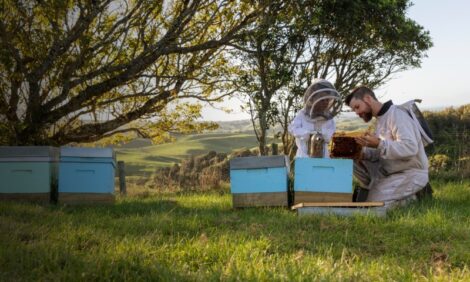
How to reduce single-use plastic in your day

Since the year 2000, the world has produced as much plastic as all the preceding years combined. Each year humans produce over 380 million tons of plastic, and up to 50% of that is for single-use purposes. Plastic is used in a huge variety of products because it’s cheap, versatile and reliable. But 75% of all plastic ever produced is waste. Due to the disposable nature of our lifestyles, and the mismanagement of waste, single-use plastic is causing severe harm to our planet, especially our oceans. We all need to do our part to slow the uncontrolled growth of plastic pollution.
Plastic Free July is all about learning to make small changes and reduce single-use plastic in our everyday lives. Reducing the amount of plastic we waste will help clean up our oceans, our streets and our planet.
At Xero, we are actively reducing our plastic footprint as part of our commitment to positively contributing to environmental sustainability. We’re big fans of Plastic Free July, so we’ve put together some tips for how to reduce single-use plastic in your day, as well as suggesting some beautiful alternatives made by our customers.
Tips for the work day
If you’re heading out to grab a coffee – and your local cafe will accept them during Covid – take a reusable cup with you. This is one of the easiest and simplest steps we can all take to reduce single-use plastic every day. Cuppa Coffee Cups are beautifully designed by New Zealand artists, and made from food-grade polypropylene which can be easily recycled at the end of its life.
Billions of disposable coffee cups are thrown away every year globally. Although many cups appear to be made out of paper, they are often lined with plastic to stop the liquid spilling, therefore they can’t be recycled. Throwing these dirty cups into the recycling can actually do more harm by contaminating the recycling stream.
Whether you’re packing lunch for the office or putting away leftovers at home, swap out plastic food wrap for a beeswax wrap that can be washed and reused. Australian-based Great Wrap worked for two years to create the world’s first certified compostable cling wrap, which can break down in home compost in under 180 days. Hunt and Gather Bee Co makes beeswax wrap from the hundreds of thousands of bees they house in Raglan, New Zealand. Owners Rory and Hannah O’Brien package their honey in glass jars, use wooden hives, and print their labels on paper to avoid plastic.
Sustainable grocery shopping
A trip to the grocery store or online delivery can quickly accumulate unnecessary plastic wrapping. Take reusable shopping bags to the supermarket and if you’re buying fruit and vegetables you could try using these produce bags from Australian-based business Flora and Fauna. The business has plastic-free packaging and in July 2020 launched an industry wide initiative called ‘Take It Back’ to reduce plastic packaging used in shipping orders.
Another easy way to reduce plastic food packaging on dry food is by heading to your local refillery. GoodFor in New Zealand allows customers to bring their own reusable storage containers and fill them up with bulk foods such as flours, nuts, herbs and spices, as well as cleaning staples. The store also offers a range of reusable storage options, such as stackable stainless steel lunch boxes, glass jars and organic cotton bags.
Reducing plastic at the weekend
When that time of the week rolls around for takeaway food, ask them not to include plastic cutlery or straws. And for dessert, treat yourself to an ice cream cone instead of taking a plastic spoon and cup! If you’re a smoothie lover, say no to the plastic straw and swap it for a CaliWoods metal straw. CaliWoods founder, Shay Lawrence studied environmental science at university and is glad to see an increase in awareness and adoption of positive habits since launching her sustainable straws many years ago.
If you’re out and about, be sure to take your own water bottle with you so you don’t end up buying bottled water. Single-use plastic bottles take 700 years to start to decompose, and it can take up to 1,000 years for them to fully decompose.
Another treat to enjoy if you’ve left your reusable coffee cup at work, is Kiwi business Twiice’s edible coffee cups. The biscuit-based cup is leakproof, free from additives, preservatives, and it will stay crisp while you drink your coffee.
A household plastic item that is often forgotten about is clothing pegs. There are some funky plastic-free alternatives available, like Bento Ninja’s stainless steel pegs and clothes racks which won’t snap easily. Founder Noriyo started the business creating Japanese-inspired stainless steel bento lunchboxes, and has expanded to make living sustainably simple for families.
Here’s one for new parents – Diaper Stork is a Seattle-based cloth diaper service and baby boutique providing a healthy and eco-conscious alternative to disposable diapers. They also provide resources for parents who want to learn more about making sustainable, environmentally-friendly choices.
If you’d like to learn more tips for Plastic Free July, visit their website. Find out more information about environmental sustainability at Xero here.
The post How to reduce single-use plastic in your day appeared first on Xero Blog.
Source: Xero Blog






